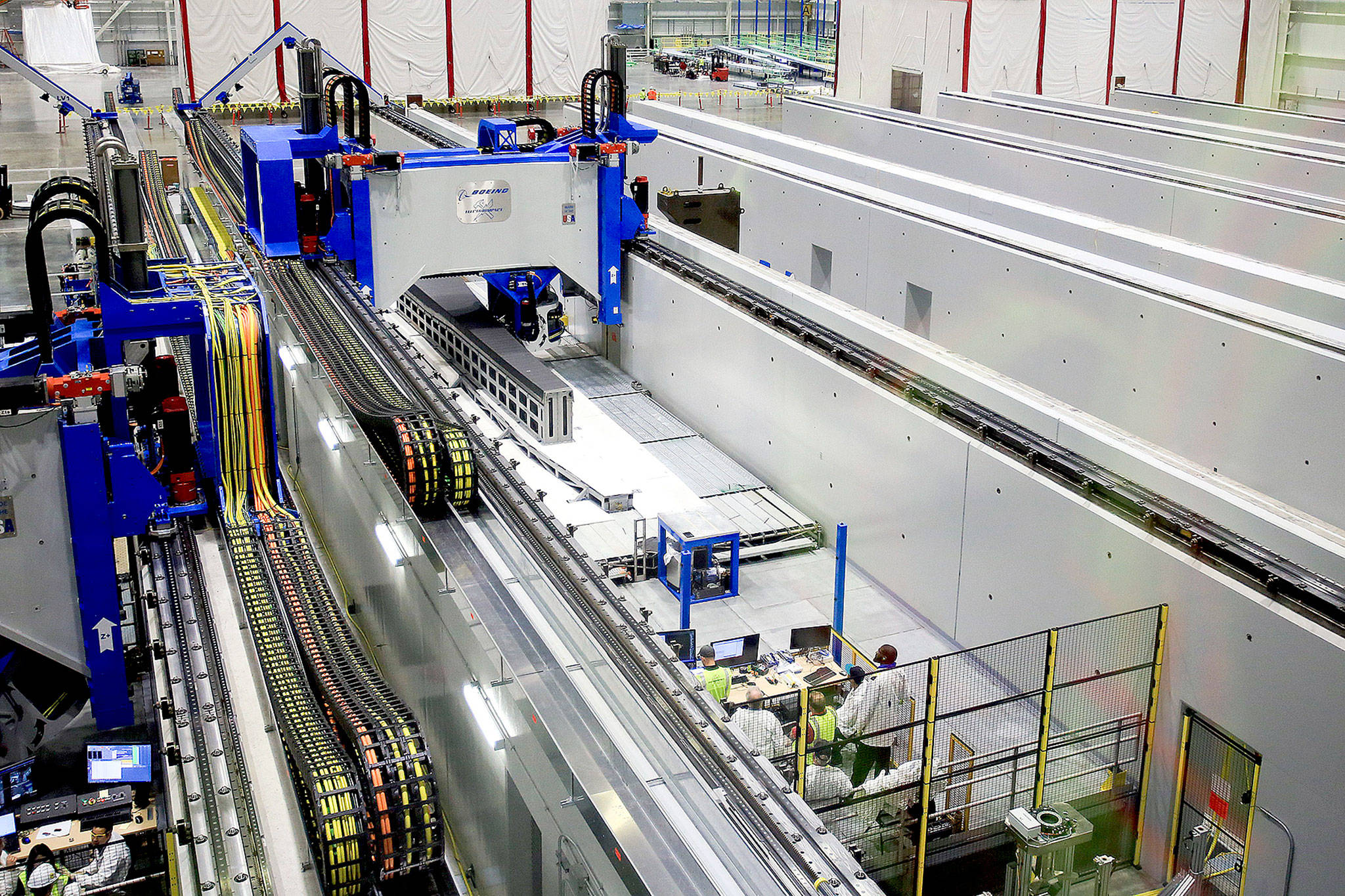OLYMPIA —The Boeing Co. boosted its investment in Washington in 2016 while garnering less tax savings from the state’s suite of incentives aimed at ensuring the aerospace company keeps making jets here.
The firm saved $242 million on its 2016 state tax bill as a result of those tax breaks, $63 million less than it did in 2015, the company said in a news release Friday.
Boeing spent an estimated $13.5 billion in the state last year, an increase of $500 million from 2015, the release said. Most of that spending was salaries and wages, purchases from local suppliers and capital investments for the 777X and 737 Max airplane programs, the company said in the news release.
The total also includes “hundreds of millions of dollars” Boeing paid in state and local taxes, more than $32 million in community contributions and nearly $35 million in college tuition for Boeing employees in Washington.
Boeing released the figures Friday, ahead of a required filing next week with the state Department of Revenue.
“Whenever we look at tax incentives, it is important to understand the full story. We think this confirms the value the state taxpayers receive from Boeing’s presence,” said Bill McSherry, vice president of Government Operations for Boeing Commercial Airplanes. “Even as we navigate a highly competitive global market, we are continuing to invest billions of dollars in the state.”
Officials with two major aerospace worker unions focused Friday on the fewer number of Boeing employees in the state. They said the incentives are supposed to help maintain and increase employment in the industry but haven’t at Boeing.
The company shaved 6,344 jobs in 2016, according to company records. It has issued nearly 1,200 layoff notices to workers in this state in 2017.
“We continue to be extremely concerned about these tax breaks and the fact that the company employment is going down. That’s not what the taxpayers of Washington expected,” said Bill Dugovich, spokesman for the Society of Professional Engineering Employees in Aerospace (SPEEA), which represents more than 20,000 Boeing engineers and technical workers.
“Although the savings to Boeing appears to be less, the number of jobs at Boeing are as well,” said Larry Brown, political director for the International Association of Machinists and Aerospace Workers which represents more than 30,000 Boeing workers in Washington.
Washington has an estimated 650 aerospace suppliers and 1,350 aerospace-related companies not named Boeing, according to the state Department of Commerce.
State lawmakers enacted incentives for the aerospace industry in 2003 to land the 787 Dreamliner in Washington. They expanded and extended the tax breaks in 2013 to help convince Boeing to build its newest jetliner, the 777X, in the state. It is projected the extension will enable Boeing to save close to $8.7 billion in tax payments through 2040.
Last year marked the first time the state required companies to disclose the value received from the aerospace incentives. Close to 300 companies reported claiming one or more of the incentives in 2015.
Boeing’s $242 million in tax savings in 2016 included $100 million from a lower business-and-occupation tax rate, $82 million for a pre-production tax credit and $23 million from sales taxes waived for purchases of construction materials.
By comparison, the company’s $305 million in savings in 2015 included $106 million for the pre-production credit and $51 million for the waived sales taxes. That year covered the bulk of Boeing’s investment in construction of the massive building where workers will make the wings for the 777X.
The airplane maker delivered 748 commercial airplanes in 2016. That is slightly fewer than its record-high 762 deliveries in 2015. Boeing executives expect to deliver between 760 and 765 commercial jets this year.
Even as Boeing has cranked up airplane production, it has cut its workforce by more than 13,600 since the beginning of 2016. Most of the job cuts have come through buyouts and attrition. Boeing has issued 1,162 layoff notices to Washington workers in 2017, according to state records. That tally includes some duplicate notices.
Frustrated by the decline in their ranks, leaders of SPEEA and the Machinists union are working in Olympia to get terms of those incentives revised as they pertain to Boeing. Two bills have been introduced to increase the tax rate paid by Boeing if its workforce drops below certain levels. Both are awaiting action in the House Finance Committee.
“We remain hopeful there will be some accountability added to the tax incentives the company is receiving,” Dugovich said.
Jerry Cornfield: 360-352-8623; jcornfield@heraldnet.com. Twitter: @dospueblos.
Talk to us
> Give us your news tips.
> Send us a letter to the editor.
> More Herald contact information.

























